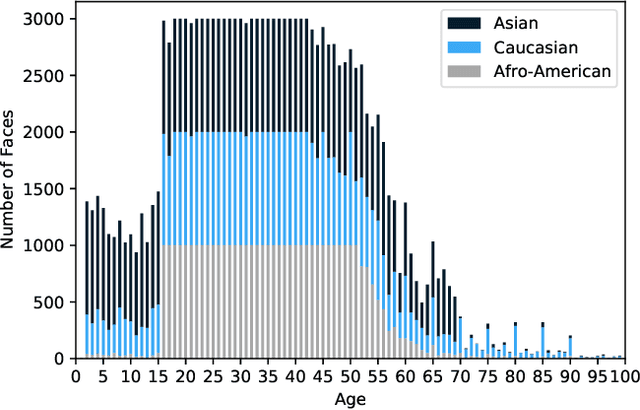Fairness Matters -- A Data-Driven Framework Towards Fair and High Performing Facial Recognition Systems
Paper and Code
Sep 16, 2020



Facial recognition technologies are widely used in governmental and industrial applications. Together with the advancements in deep learning (DL), human-centric tasks such as accurate age prediction based on face images become feasible. However, the issue of fairness when predicting the age for different ethnicity and gender remains an open problem. Policing systems use age to estimate the likelihood of someone to commit a crime, where younger suspects tend to be more likely involved. Unfair age prediction may lead to unfair treatment of humans not only in crime prevention but also in marketing, identity acquisition and authentication. Therefore, this work follows two parts. First, an empirical study is conducted evaluating performance and fairness of state-of-the-art systems for age prediction including baseline and most recent works of academia and the main industrial service providers (Amazon AWS and Microsoft Azure). Building on the findings we present a novel approach to mitigate unfairness and enhance performance, using distribution-aware dataset curation and augmentation. Distribution-awareness is based on out-of-distribution detection which is utilized to validate equal and diverse DL system behavior towards e.g. ethnicity and gender. In total we train 24 DNN models and utilize one million data points to assess performance and fairness of the state-of-the-art for face recognition algorithms. We demonstrate an improvement in mean absolute age prediction error from 7.70 to 3.39 years and a 4-fold increase in fairness towards ethnicity when compared to related work. Utilizing the presented methodology we are able to outperform leading industry players such as Amazon AWS or Microsoft Azure in both fairness and age prediction accuracy and provide the necessary guidelines to assess quality and enhance face recognition systems based on DL techniques.
 Add to Chrome
Add to Chrome Add to Firefox
Add to Firefox Add to Edge
Add to Edge